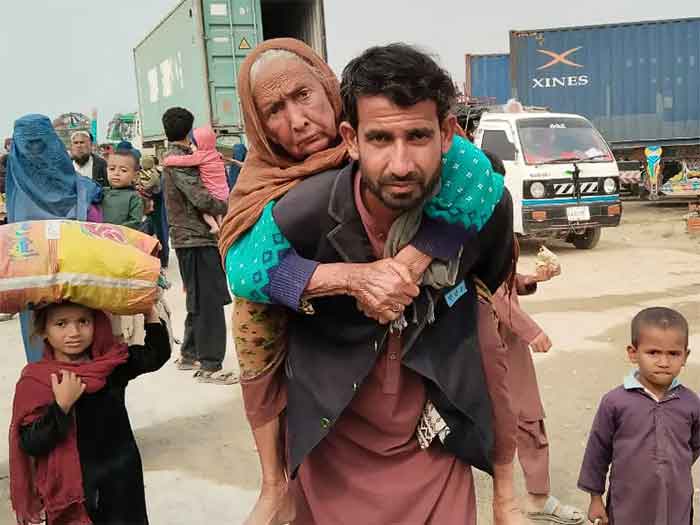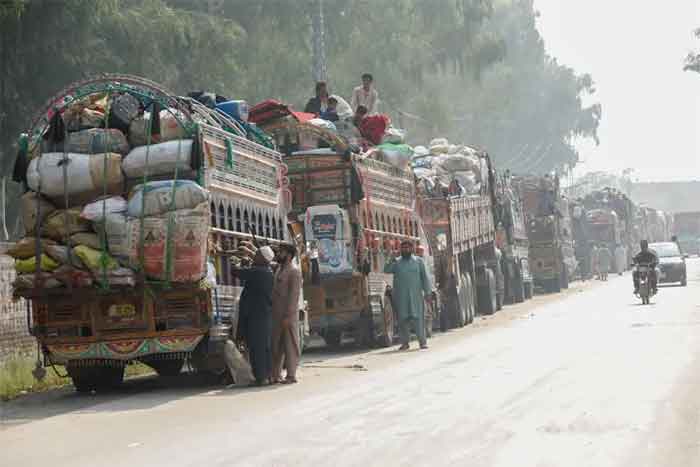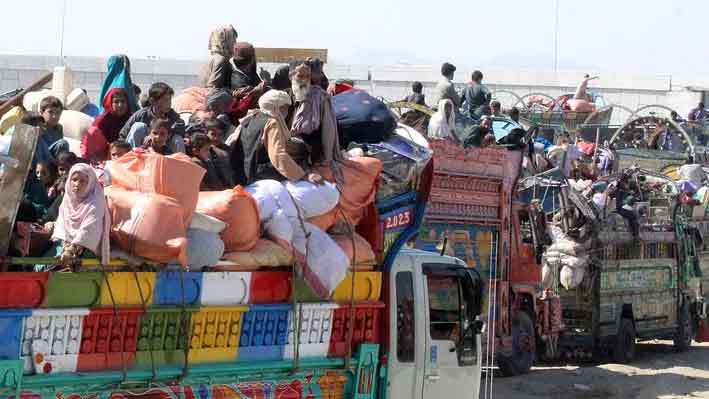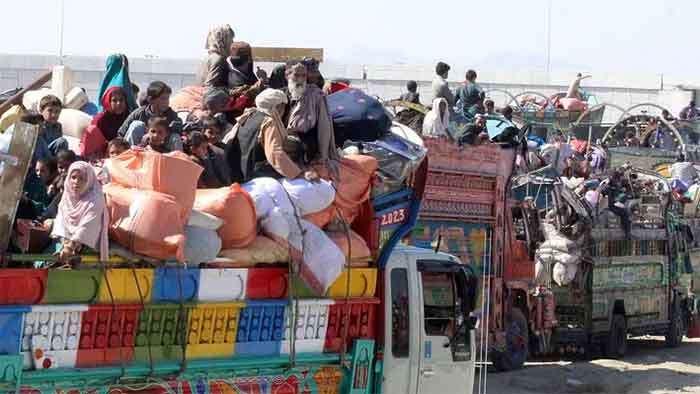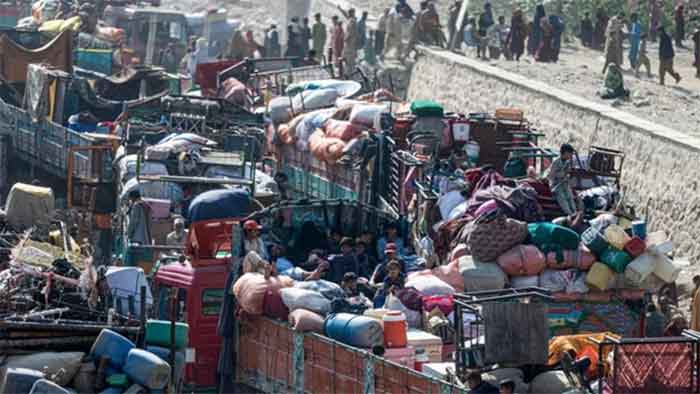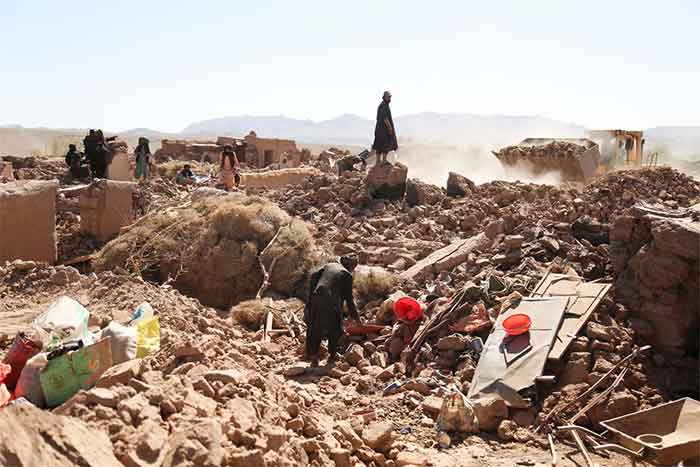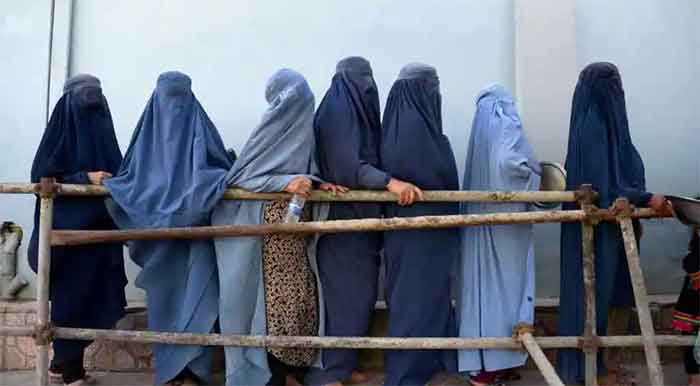
Some countries are in shambles.
Some countries are in a wreck — war torn, poverty-ridden, divided deeply from the world where such expressions are only hyperboles and not a reality. The major war in these fortunate parts of the world currently is mainly with the pandemic. These nations still have the bandwidth to explore how to make more money and flourish. When can flying be resumed? Tours? Holidays? Historically as we evolved, humans set limits. We mapped borders that cannot be transcended, having drawn them ourselves – boundaries of ‘isms’ – which disallow us from reaching out a helping hand to our neighbours in distress. As humans, how long will we keep absolving ourselves of responsibility for ignoring the pain faced by members of our own species?
In a humorous film called Baby’s Day Out (1994), a gorilla took charge of a human child and saved him from villainous men. Today, as some countries cry out in pain, we see the suffering of our own species and yet sit quietly waiting for the others to act. One month ago, a young Pulitzer Prize winning photojournalist, Danish Siddiqui, died shooting a clash between Pakistan, Afghan security forces and the Taliban. One month after his death — that seems a lifetime away– we watch the Taliban take over. What did the death do? What could Reuters do? Was Siddiqui a victim of his own choices or of circumstances? He said: “I shoot for the common man…” But do all common men want to know, know of the pain and the suffering? How does it help? What does it do for them? Does it mobilize help for the victims? Does it create an awareness of suffering and make us kinder, more considerate as a species?
Thirty years ago, I left journalism because we were taught “good news is no news”. I have always wondered if this is the favourite dictum of much of the media? Artistes like Goutam Ghose, who made the film, Moner Manush (2010) on a Sufi based baul in response to Ayodhya Babri Masjid rioting, conquer the violence of hate with the truth of love. Leaving behind the facade of hunting for truths, Ghose has embraced the best of truths and presented them to people as did the man on whose life he made the film, Lalon Fakir (1774-1890). Lalon himself was a Hindu who was abandoned when he was sick during a pilgrimage and healed back to health by a Muslim family. When he returned to his village, he was thrown out as he was said to have lost his caste. He went away and found his own home at the edge of a forest with mystics. And when anyone enquired about his caste or religion, he said, “I am a human.” An uneducated man who could not read and write, his work was taken up by the Tagore family and some of it has found its way to us in rustic Bengali of the nineteenth century and has been subsequently translated and studied. Lalon moved people with the truth of his lyrics on love and the oneness of humankind.
Will we have people like that among the groups who sit in the Taliban laced territories? Will they be allowed to survive? The statues of the Bamian Buddha were destroyed in 2001. Will art and heritage have a chance at survival?
As I watched the Taliban drive through villages of Afghanistan on TV, there were glimpses of women in burqas who sat on the ground, seemingly breaking bread with others. Were there children too? Children who should have been in school? What will happen to all the girls? Will they have the privilege of an education? As infrastructures are built, will they include schools for all children — boys and girls? As the wave of American protection recedes and the Taliban takes over, I am wondering is he the voice of the real people — people who have not lived in cities but in villages, without the benefits of Western education and thought? How many of them support him?
On the other hand, I see Myanmar, where people are protesting the military coup. We as humans watch, watch them — with drops of humaneness dripping from an ocean of acceptance of atrocities. Can we rise together like a tsunami to help mankind in need?
I feel sad when I see countries fight. I weep when I see homes destroyed in natural calamities or wars. Where will all these people go? The images embedded in the psyche paint stark fears in my heart. I still remember the unbelievable horror of 9/11 as I saw the aircrafts hit the twin towers while listening to the news. That was many years ago…Now, I am visibly shaken to see developments that seem to head the world for times that have regressed in the history of humaneness but progressed in technological advances. Are these all for real? What could be a way to tackle this? Why did village after village let the Taliban take over? The CNN aptly said in the TV news that the army “melted away”. All this is happening within the part of the world I live in.
I live in a tiny island, nurtured, cared for, with healthcare facilities… away from where I was born. Like Odysseus, I have travelled, travelled to find a place where I can have an uninterrupted life and a place of peace, I call my home. I do not face struggles experienced by people in Afghanistan, Mayanmar, Pakistan, India, Bangladesh, Thailand or in the Middle East or Africa or the Americas.
Sitting here, I dream of a world where we do not have borders, where people help people, where kindness exists, where ‘isms’ do not drive out the urge for helping others, where humanity stands united, and poverty can be alleviated over time. Remember that was said by Nobel Laureate Abhijit Banerjee — a reallocation of resources can solve the problem of hunger. That was another time, another place. As I see the suffering around me in all these countries defined well by boundaries, I see a part of the world that moves forward in time towards a future we can dream of and, across a schism that seems to deepen, I see people struggle, struggle to survive. The international community watched as the Rohingyas continue to lack of a home, the Taliban took over, Myanmar protests a regime without respite. None of them have the luxury of the life I lead. Do they sleep hungry? Do their children live out their dreams? What are their dreams?
In a world where, mankind emerged out of a single continent and spread all over, I can only be aware of the suffering of others. I do not even pretend to understand their plight. But, reading of and watching these issues on the news, I wonder if we need to change, change the foundations of our ideas, ideologies, pedagogies, governance, trade, education, and way of life to find inclusivity and consonance for all our species. Writers and thinkers have often tried suggesting it. Most call such visualisations utopias. But without dreams or visions, would we have moved out of caves and progressed enough to build space stations?
When I read, I often notice what reduces human interactions are extreme ease and luxury which creates islands of consumerist lotus-eaters — as can be seen among the Spacer community in Asimov’s Robot series set in the future. Spacers were originally people from Earth who populated other planets to create their own lifestyle and went into denial of their planet of origin. They were so obsessed with their divisions and revulsions that they lived away from each other and used the convenience of robots to do all their work. They avoided human interactions. Asimov in Robots and the Empire (1985) observed: “They (The robots) lessen the dependence of people upon people. The fitted interstices between. They were the insulation that diminished the natural attraction people have for each other, so that the whole system fell apart into isolates.”
Humans created distances between themselves by using the conveniences given by robots, to lead a privileged existence. They removed themselves from the needs of their neighbours and finally were endangered as their population thinned out over the vastness of a myriad of planets. If we replace the planets with countries, can we draw a parallel?
Tagore (1861-1941) had identified the problem for us in an essay he wrote in 1917, more than a century ago: “The problem is whether the different groups of peoples shall go on fighting with one another or find out some true basis of reconciliation and mutual help; whether it will be interminable competition or cooperation.” This was said in the context of nationalism in India and partly in America. But it holds for the whole world in the present context. The maestro continues to reflect in the same essay: “The whole world is becoming one country through scientific facility. And the moment is arriving when you also must find a basis of unity which is not political…There is only one history — the history of man.”
Will we all be a part of that ‘one history’?
Mitali Chakravarty likes to waft among clouds in quest of a world drenched in love and harmony and in that spirit runs the Borderless Journal.

